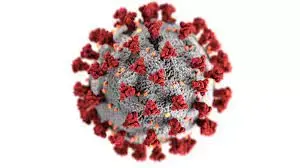Highlights
• Cognitive engagement induced distinct prefrontal haemodynamic patterns post COVID-19.
• 40% of the undergraduate students reported brain fog due to COVID-19.
• 37 % of the undergraduates exhibited impaired cognition up to 17 months post-infection.
• Brain fog appeared to affect the distinct prefrontal haemodynamic patterns.
Abstract
To date, 770 million people worldwide have contracted COVID-19, with many reporting long-term “brain fog”. Concerningly, young adults are both overrepresented in COVID-19 infection rates and may be especially vulnerable to prolonged cognitive impairments following infection. This calls for focused research on this population to better understand the mechanisms underlying cognitive impairment post-COVID-19. Addressing gaps in the literature, the current study investigated differences in neuropsychological performance and cerebral haemodynamic activity following COVID-19 infection in undergraduate students. 94 undergraduates (age in years: M = 20.58, SD = 3.33, range = 18 to 46; 89 % female) at the University of Otago reported their COVID-19 infection history before completing a neuropsychological battery while wearing a multichannel near-infrared spectroscopy (NIRS) device to record prefrontal haemodynamics. We observed that 40 % retrospectively self-reported cognitive impairment (brain fog) due to COVID-19 and 37 % exhibited objective evidence of cognitive impairment (assessed via computerised testing), with some suggestion that executive functioning may have been particularly affected; however, group-level analyses indicated preserved cognitive performance post COVID-19, which may in part reflect varying compensatory abilities. The NIRS data revealed novel evidence that previously infected students exhibited distinct prefrontal haemodynamic patterns during cognitive engagement, reminiscent of those observed in adults four decades older, and this appeared to be especially true if they reported experiencing brain fog due to COVID-19. These results provide new insights into the potential neuropathogenic mechanisms influencing cognitive impairment following COVID-19.


That doesn’t necessarily fix the brain frog. In ME/CFS the blood oxygen is usually normal, but the amount that gets into the cells is way less. I’m not saying it won’t help and if there’s any research that implies that it does help that’d be awesome. I just don’t want people to get false hope and buy an expensive mask that won’t necessarily fix the issue.